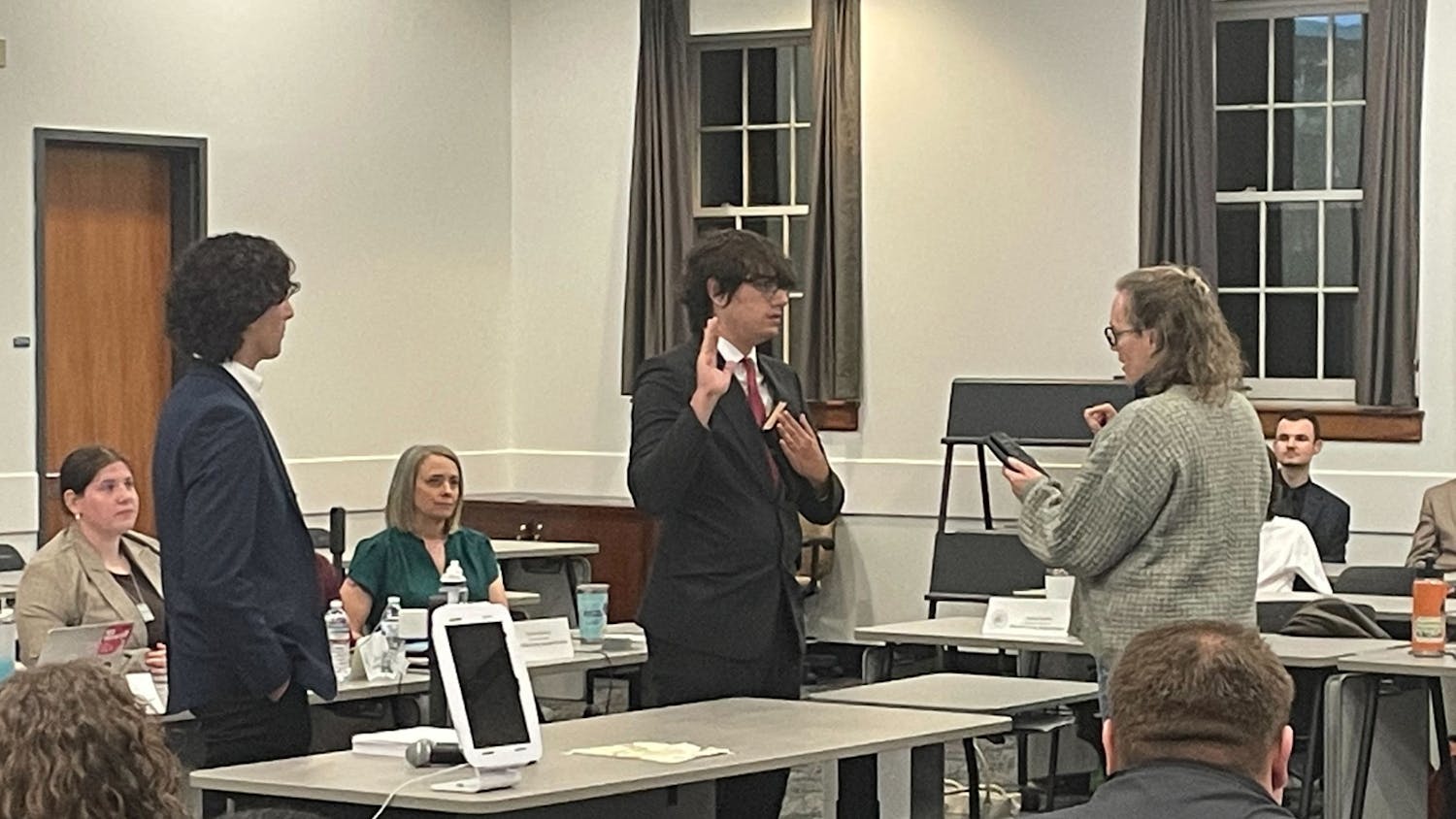Cows poke their heads through the wooden bars, jostling one another to reach the feed Glenn Lackey is dumping into the trough.
Lackey had planned to save this feed for the winter, but because of a dry summer, he was forced to break into his reserves. His 300 cattle and 1,000-acre farm have suffered because of the drought conditions this summer, he said.
We've been using winter feed since August
Lackey said, as he continued to pour feed. We're extending our food without endangering the animals' health.
A dry, hot summer - days many people revel in - has created a significant problem for Ohio's agriculture industry.
On Sept. 22, the U.S. Department of Agriculture declared Athens County one of 72 primary disaster areas in Ohio, said Christina Reed, a public relations outreach specialist for the department.
According to the Scalia Lab for Atmospheric Analysis Web site, www.scalialab.com, Athens County has had 10.02 fewer inches of rainfall than the yearly average. The Athens County Farm Service Agency uses the reports by Scalia Lab when compiling its Disaster Assessment Reports, which are not available to the public.
(The Scalia Lab) is the most accurate thing I have locally said Mike Strode, Athens County FSA executive director.
But even as the declarations are made, the arid conditions are not pervasive throughout every county, said LeAnne Mizer, a spokeswoman for the Ohio Department of Agriculture.
(The drought) is very spotty she said. You can go a short distance and find a significant difference in the amount of rainfall.
Lackey said such disparities occur on specific areas of his property.
The bottoms (of the hills) have plenty of water
but the hills are dry
he said.
In order for a county to be declared a disaster area, a local authority must notify the governor's office with reports of agricultural revenue losses. The Farm Service Agency then compiles the information in a Disaster Assessment Report, which is reviewed by county and state emergency boards.
The bureaucratic process eventually leads to the Secretary of Agriculture, who has the final decision to approve or decline the request. If approved, farmers in the disaster county or contiguous counties have eight months to apply for low-interest loans through the government.
To get a low-interest loan, farmers must show a 30 percent loss compared with the previous year to be eligible, Mizer said.
The money you're borrowing is money you've already lost
Lackey said. It's like if you didn't get enough sleep the night before and you say
'I'm going to make up for it tonight.'
Lackey, who operates the Red Bird Ranch with his two younger brothers, Keith and Brian, said it is not his philosophy to borrow money to compensate for losses.
Many of the farmers in Athens County are part-time agriculturists, which reduces the benefit of low-interest loans because their income is less dependent on agricultural revenue, said Rory Lewandowski, an Ohio State University extension educator of agriculture and natural resources in Athens County.
Low-interest loans may not be as advantageous to (part-time farmers)
he said.
The declarations have become more and more frequent, with as many as one-half to two-thirds of agrarian counties in the United States being designated disaster areas, according to an FSA fact sheet.
It becomes micro-management
Lackey said, referring to the government's propensity to formally name disaster areas. If you've been affected
it doesn't matter if you're in a (primary) county or not; you can apply for help.
Lackey said he plans to sell a few more cattle than he has in previous years to offset the drought and the rising fuel costs.
We'll probably sell 40 to 50 heads (of cattle) this fall
he said. We have to tighten our belt. There's a certain risk to farming.
For more pictures, please see Parched Pastures Special Project





